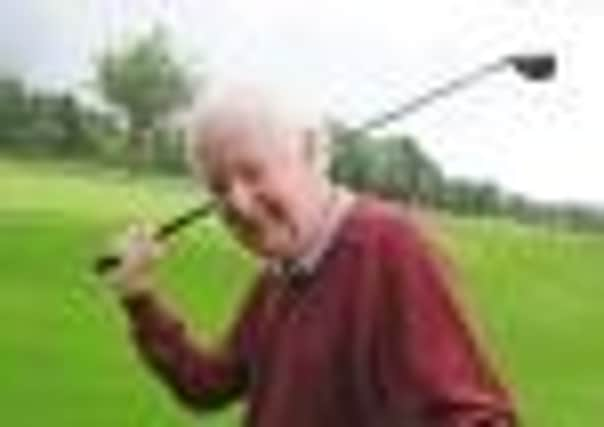I putt golfing legend Bobby to the sword


Donald Ferguson had already created a stir in Scotland’s junior golf scene when, almost 60 years ago, he accepted the challenge of a round with one of the game’s giants, four-time Open champion Bobby Locke.
The unlikely and unusual match-up in August 1952 saw Donald, then only 12, shoot a round on his local course at Milnathort in Perthshire, while, at the same time, Locke, fresh from his third Open victory at Royal Lytham and St Annes, took to the fairways in his home country of South Africa.
Advertisement
Hide AdAdvertisement
Hide AdWith the help of an 18 handicap, Donald triumphed in the British Golf Foundation’s Open champion challenge.
Donald, now 72 and living in Broomieknowe, said: “It was a standard scratch 71, quite a difficult course. I shot a 67 handicap score, he had a 69.
“It wasn’t a bad score considering I was only a young boy.
“When I realised I had won I just felt fantastic. Bobby Locke was the equivalent of Lee Westwood or Tiger Woods. I think there have been only two other players in the history of the game – Peter Thompson and Tom Watson – who have won the Open three times or more like he has.”
Donald was rewarded with a certificate signed by the legend.
“I was a very good young golfer,” said the father-of-two. “I went on to win the Perth and Kinross County Championship. I also got a cap for Scotland’s boys team against England for a match in 1957, which we won.
“At the age of 17, I was offered a job as a professional at Crieff. I didn’t take the job as I would have to have given up school. I sometimes regret it.”
Donald said his golden period as a golfer lasted until he married and settled into a steady career at the age of 24. He said: “I managed to work myself up to a handicap of one. I was never a scratch golfer.”
Alan Bough, finance manager at the Golf Foundation, which started out as the British Golf Foundation in 1952, said: “The Open challenge was quite a feature of the very early years of the foundation.
“It’s still something we do today. It’s also about inspiring young people to be the next Bobby Locke or Lee Westwood.”